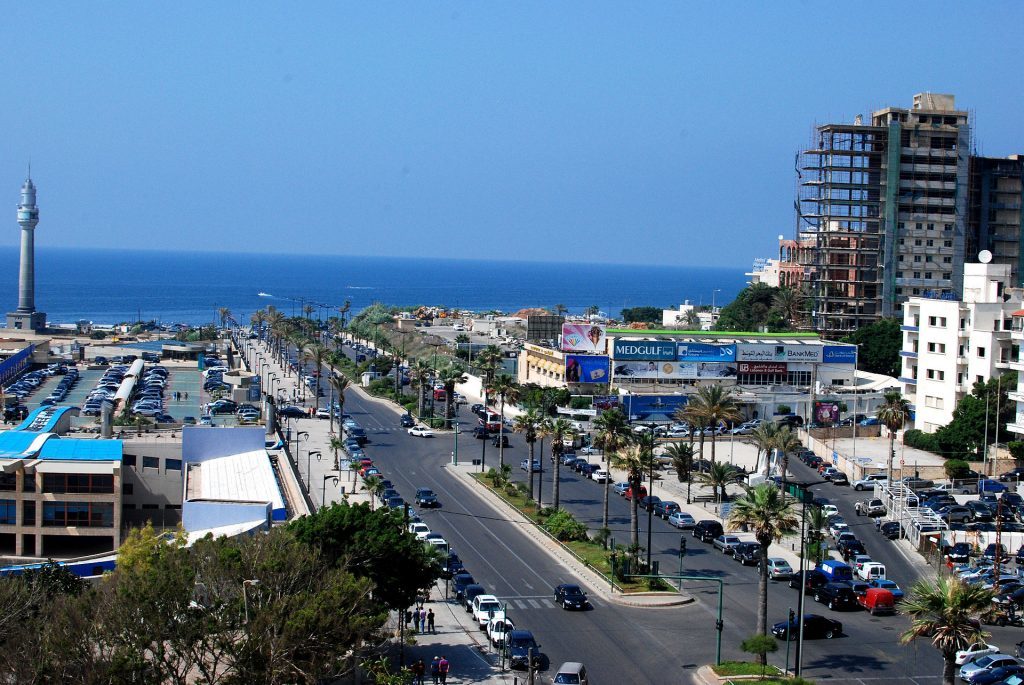
Lebanon will auction energy-development rights to five offshore areas and adopt production-sharing contracts to attract international investors as the tiny country seeks to join a regional race to tap oil and gas wealth in the eastern Mediterranean.
The government may qualify more bidders for its first sale of offshore energy licenses, and it plans later to announce dates for the historic auction, Energy Minister Cesar Abi Khalil said Thursday in Beirut. He made his comments a day after Lebanon’s cabinet approved two decrees allowing the nation to move ahead with the sale, ending three years of delays.
“The number of blocks that will be auctioned off in the first licensing round will be five, in line with the gradual auctioning strategy we are pursuing,” Khalil said at a news conference at the ministry’s headquarters. The government plans eventually to offer a total of 10 offshore blocks for exploration.
Lebanon has lagged behind neighboring Israel, Cyprus and Egypt in developing oil and gas deposits that may lie beneath its share of the Mediterranean Sea. Three years ago, former Energy Minister Gebran Bassil said seismic surveys showed the country could hold at least 96 trillion cubic feet of gas and 850 million barrels of oil. Exxon Mobil Corp. and Eni SpA are among companies qualified to bid to explore off the country’s coast.
Wealth Fund
The newly formed government headed by Prime Minister Saad Hariri passed the two decrees on Wednesday, state-run National News Agency reported, citing Bassil, who currently serves as foreign affairs minister. The decrees demarcate energy blocks, specify tender protocols and establish the use of production-sharing contracts with investing companies.
Production-sharing contracts will enable investors to share any oil and gas output with the Lebanese government, in contrast to service contracts that would pay the companies a fixed fee for whatever they produce, regardless of market prices.
Lebanese law requires that money from the sale of oil and natural gas be deposited into a national sovereign wealth fund. A law to establish such a fund is currently being studied, Khalil said.
ExxonMobil, Eni, Chevron Corp., Petroleo Brasileiro SA and Royal Dutch Shell Plc are among companies already qualified to bid as operators. Thirty-four companies are qualified as non-operators, including Marathon Oil Corp., OMV AG and Dana Petroleum Plc.
Potential Bidders
The Energy Ministry will consult with the companies to gauge their interest in the auction, and depending on what they say, it will decide whether to hold an additional qualification round, Wissam Chbat, the head of the regulatory Petroleum Administration, said in an interview.
An auction of energy assets first scheduled for November 2013 was delayed after the government failed to pass the decrees. Political disputes then left the country without a president for more than two years until the Oct. 31 election of Michel Aoun, a Christian close ally of the Iran-backed Hezbollah group. Lebanon, which is struggling with severe power shortages and hosting more than a million Syrian and Palestinian refugees, needs revenue to trim its public debt, the highest as a share of annual economic output among Arab states.
The cabinet also formed ministerial committees to study a petroleum tax draft law and another proposed law governing onshore oil resources, Information Minister Melhem Riachi said Wednesday in a televised news conference.
